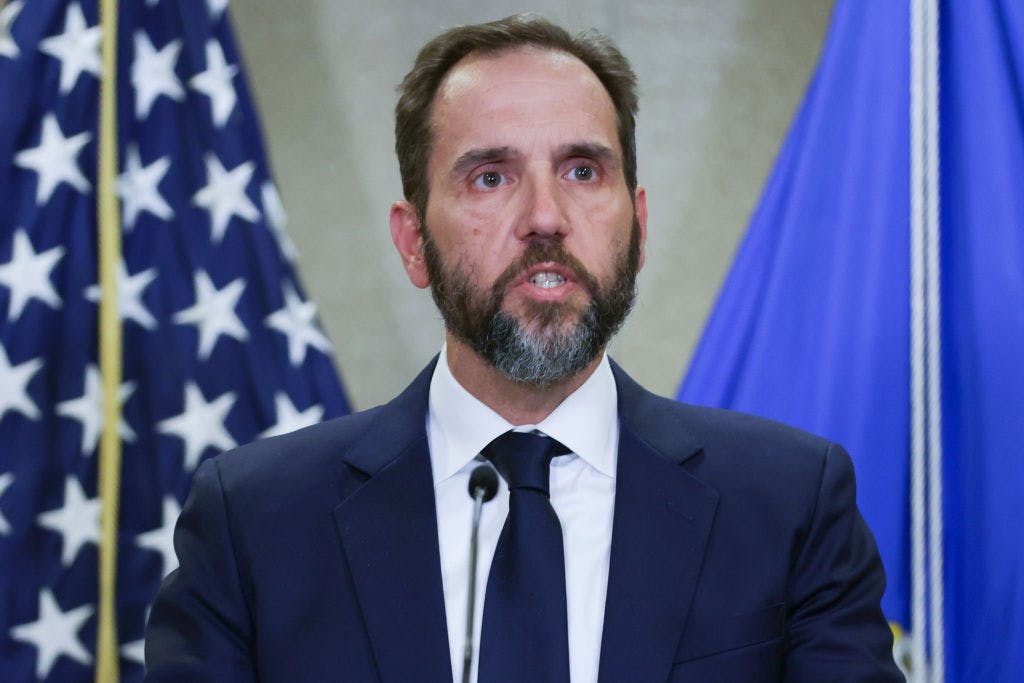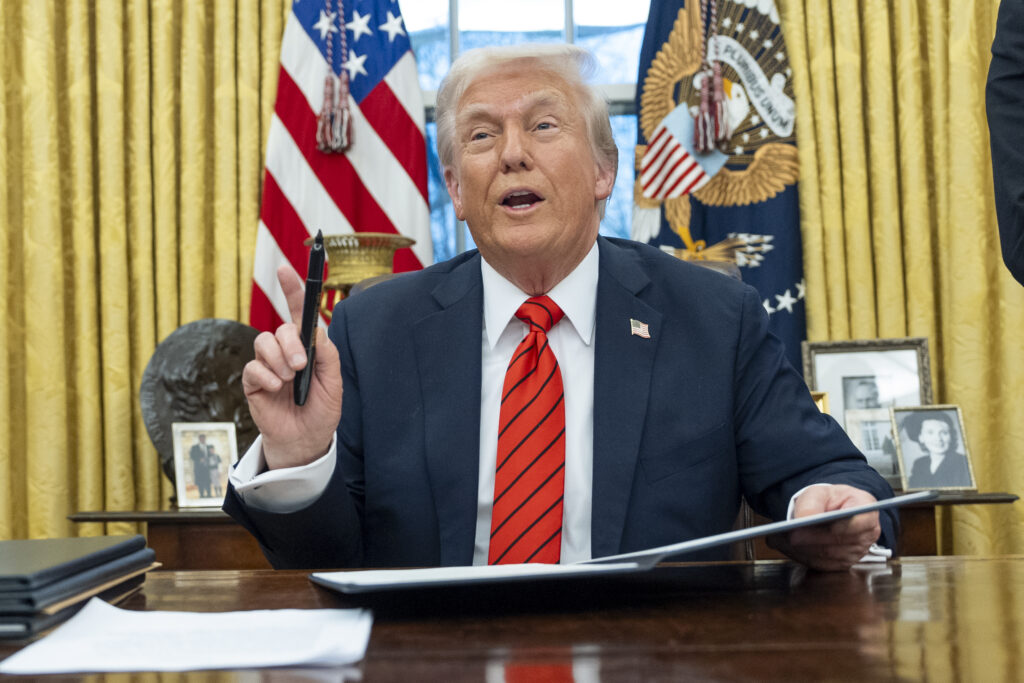Could President Trump’s Sanctioning of Law Firm That Aided Jack Smith Backfire and Help the Prosecutor Dodge Criminal Charges?
The 47th president’s executive order targeting the prosecutor’s attorney could be constitutionally forbidden.

President Trump’s executive order sanctioning the law firm that advised Special Counsel Jack Smith on a pro bono basis could soon hurtle headlong into one of the Constitution’s bedrock protections of due process — that the accused enjoys the right to have assistance of counsel for his defense.
Attorney General Bondi, speaking to Fox News’s Sean Hannity this week, asserted that “first and foremost, we got rid of the Jack Smith team. Gone.” She added that “all options are on the table” for further purges. Ms. Bondi has formalized that commitment by convening a “Weaponization Working Group,” one of whose remits is to investigate Mr. Smith’s prosecutions of Mr. Trump.
Mr. Trump, though, last week signed an executive order that revokes “any active security clearances held by Peter Koski and all members, partners, and employees of Covington & Burling LLP who assisted former Special Counsel Jack Smith.” That diktat came after Mr. Smith disclosed that Covington had provided him with $140,000 in legal services. Mr. Koski is his personal attorney.
Covington, an elite law firm stocked with Democratic rainmakers, acknowledges in a statement, “We recently agreed to represent Jack Smith when it became apparent that he would become a subject of a government investigation. Covington serves as defense counsel to Jack Smith in his personal, individual capacity.” Mr. Trump also ordered that all government contracts with Covington be canceled, though a search by the Sun did not disclose any such agreements. The president calls the executive order the “deranged Jack Smith signing, or bill.”
Could it be unconstitutional, though? The president, in whom all of the executive power is vested, possess the authority to revoke security clearances. The Sixth Amendment, though, ordains in part that “the accused shall enjoy the right to … Assistance of Counsel for his defence.” The Supreme Court held in Gideon v. Wainwright that the right to counsel is “fundamental and essential.”

Mr. Smith, though, does not yet possess that right because the high court has determined that it does not attach until “the initiation of adversary judicial criminal proceedings” — or when a possible defendant becomes the “accused” enumerated in the parchment. Mr. Smith, while the subject of withering criticism from both Mr. Trump and Ms. Bondi, has not been charged with any crime.
The erstwhile special counsel’s retention of an attorney, though — and one with experience at the Department of Justice to boot — suggests that the possibility of charges is at least being contemplated. President Biden eschewed offering Mr. Smith a preemptive pardon before he departed office. Anthony Fauci and Congresswoman Liz Cheney accepted such charters of clemency.
While it is not clear for what crime Mr. Smith could face prosecution, the possibility of charges has been raised by those in Mr. Trump’s camarilla. One counselor to the president, Mike Davis, suggested before the 47th president’s inauguration that “Jack Smith and his office must face severe legal, political, and financial consequences for their blatant lawfare and election interference.”
Mr. Davis suggested that one such consequence could be the charge of “conspiracy against rights,” the same crime with which Mr. Smith charged Mr. Trump in respect of January 6. Were Mr. Smith charged with that crime — or any other — the Supreme Court has held that not only would he be entitled to the right of some counsel, but the right to a counsel of his choice.
That is the holding of the Supreme Court’s decision in United States v. Gonzalez-Lopez. In a 5-to-4 ruling written by Justice Antonin Scalia, the court held that the denial of a paid counsel of choice for a criminal defendant amounts to “structural error” and requires the automatic reversal of a conviction. Scalia wrote that it’s “impossible to know what different choices the rejected counsel would have made” in an “alternate universe.”
Mr. Trump’s order blocking Mr. Koski from accessing sensitive documents could affect his ability to represent Mr. Smith, both of whose cases involved classified evidence. Citing Scalia, courts could reckon that such a punishment impairs the erstwhile special counsel’s right to counsel. If the executive order ensures that other attorneys hesitate to take on Mr. Smith as a client, the claim of constitutional injury could grow.
The National Association of Criminal Defense Lawyers shares with the Sun a statement critical of Mr. Trump’s actions against Covington, which it declares “are perceived by many as a direct response to the firm’s decision to provide pro-bono legal counsel to Jack Smith. While we acknowledge the complexities of such situations, we believe it is essential to uphold the principle of an independent legal profession and the right to counsel.”

